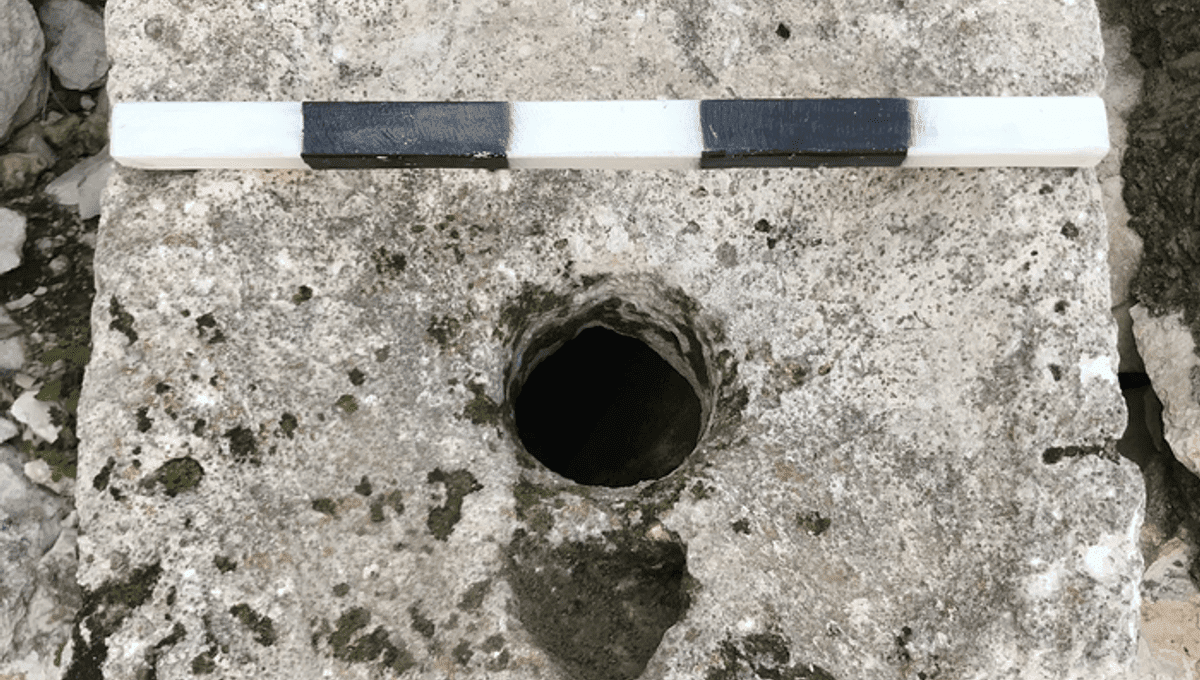
The ancient residents of Jerusalem may have been beset by dysentery, according to new findings from a pair of Iron Age latrines near the Old City. Dating back to biblical times, the two Levantine lavatories were found to contain traces of a bacteria species called Giardia duodenalis, which causes severe diarrhea and other intestinal issues.
Originally discovered during excavations carried out in 2019, the ancient toilets have already been microscopically examined, revealing the presence of a host of parasites including whipworm, roundworm, tapeworm, and pinworm. However, because microorganisms like Giardia are difficult to spot in ancient samples, the team decided to use antibodies to search for these gut-busting bugs.
Confirming the presence of the bacteria in both privies, the researchers say that their findings represent “the earliest known evidence for G. duodenalis […] so far identified in a past population anywhere in the world.”
“The fact that these parasites were present in sediment from two Iron Age Jerusalem cesspits suggests that dysentery was endemic in the Kingdom of Judah,” added study author Dr Piers Mitchell in a statement.
Probably used between the eighth and sixth centuries BCE, the ancient bogs date back to a time when Jerusalem was the capital of Judah and housed between 8,000 and 25,000 people. Toilets with cesspits were uncommon during this period, generally only found in the bathrooms of the elite.
The two johns were virtually identical in design, consisting of a carved stone seat that featured a large central hole for number twos and a smaller adjacent hole for men to aim their standing-up pees into. One was found in a palatial villa, while the other was located in the residence of an upper-class family.
However, while the refined excrement of the elites may have been well taken care of, the researchers explain that most Jarusalemians probably had no appropriate place to take a dump. “Towns were not planned and built with a sewerage network, flushing toilets had yet to be invented and the population had no understanding of existence of microorganisms and how they can be spread,” they write.
“Dysentery is spread by feces contaminating drinking water or food, and we suspected it could have been a big problem in early cities of the ancient Near East due to over-crowding, heat and flies, and limited water available in the summer,” added Mitchell.
The detection of loose biblical stools also allows researchers to gain new perspectives on ancient Mesopotamian medical texts, some of which reference a condition called sà si-sá that is likely to refer to the runs. One such text warns that “if a person eats bread and drinks beer and subsequently his stomach is colicky, he has cramps and has a flowing of the bowels, setu has gotten him.”
“These early written sources do not provide causes of diarrhea, but they encourage us to apply modern techniques to investigate which pathogens might have been involved,” said Mitchell.
“We know for sure that Giardia was one of those infections responsible.”
The study is published in the journal Parasitology.
Source Link: Biblical Toilets Reveal Earliest Known Case Of Diarrhea-Causing Parasite